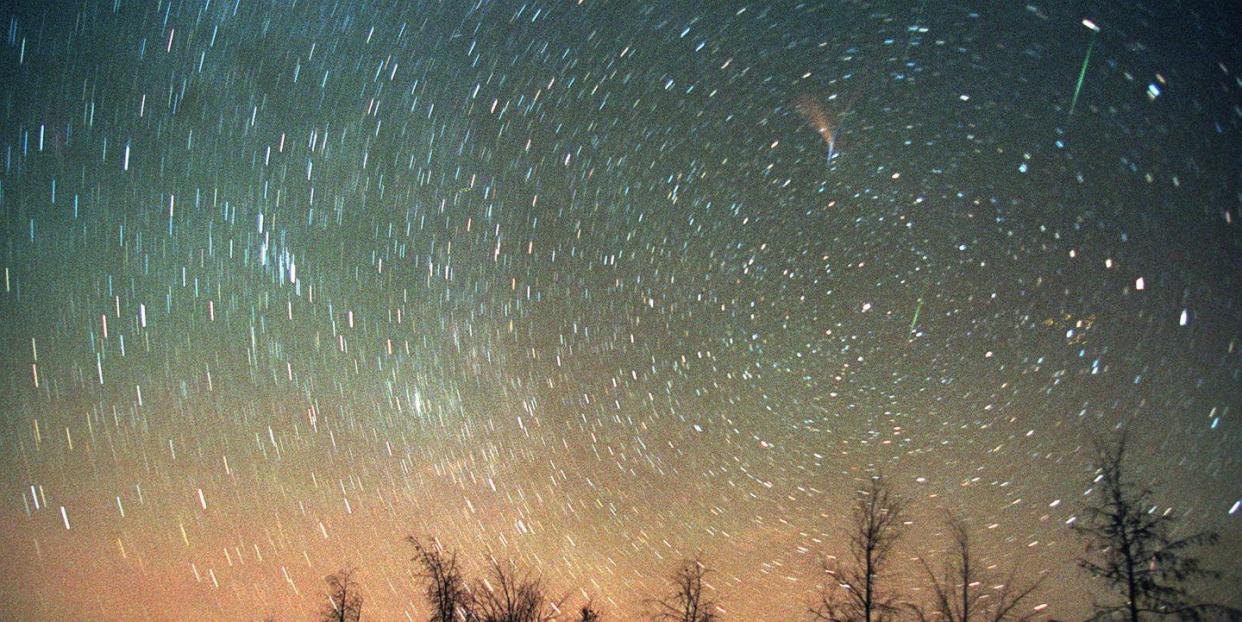Look Up This Weekend and Watch the Leonid Meteor Shower

One of the world's greatest meteor showers, the Leonids, will return this weekend. On Saturday and Sunday, weather permitting, you can watch the sky fill with up to 20 meteors per hour.
Known for "producing great meteor storms in the years of 1833, 1866, 1966, and 2001," according to the American Meteor Society, the Leonids stem from an icy parent comet known as Tempel-Tuttle. Discovered independently by American Horace Tuttle and German Ernst Wilhelm Tempel in the 1860s, Temple-Tuttle comes by Earth every 33 years or so.
The Leonids happen when Earth passes through the field of debris left behind by the comet. It burns up in our atmosphere, appearing to us as a meteor shower. The name "Leonid" arises from the fact that the meteors appear to come from the constellation Leo.
The Southeast and Midwest regions of the country have the best chances of getting a good show, meteorologists say. States like Florida, Alabama, Mississippi, Nebraska, and as far west as Nevada are set to get the best viewing sights.
As for time, EarthSky says that "between the hours of midnight and dawn" is your best bet, with a focus on the early morning hours of Saturday, November 17, or Sunday, November 18.
The Leonids represent a piece of meteoric history: they were the first major meteor shower recorded back in 1833. No less a source than Abraham Lincoln referenced the Leonids during the Civil War, when the sparks of the battlefield reminded him of the lights in the sky he had seen years earlier. Noted by Walt Whitman in his journals, the meteor shower was to Lincoln a symbol of hope. "But looking back of them in the heavens," he said, I saw all the grand old constellations with which I was so well acquainted, fixed and true in their places. ... the world did not come to an end then, nor will the Union now."
If the Leonids inspired Lincoln, it might be worth seeing what all the fuss was about.
Source: Washington Post
('You Might Also Like',)

